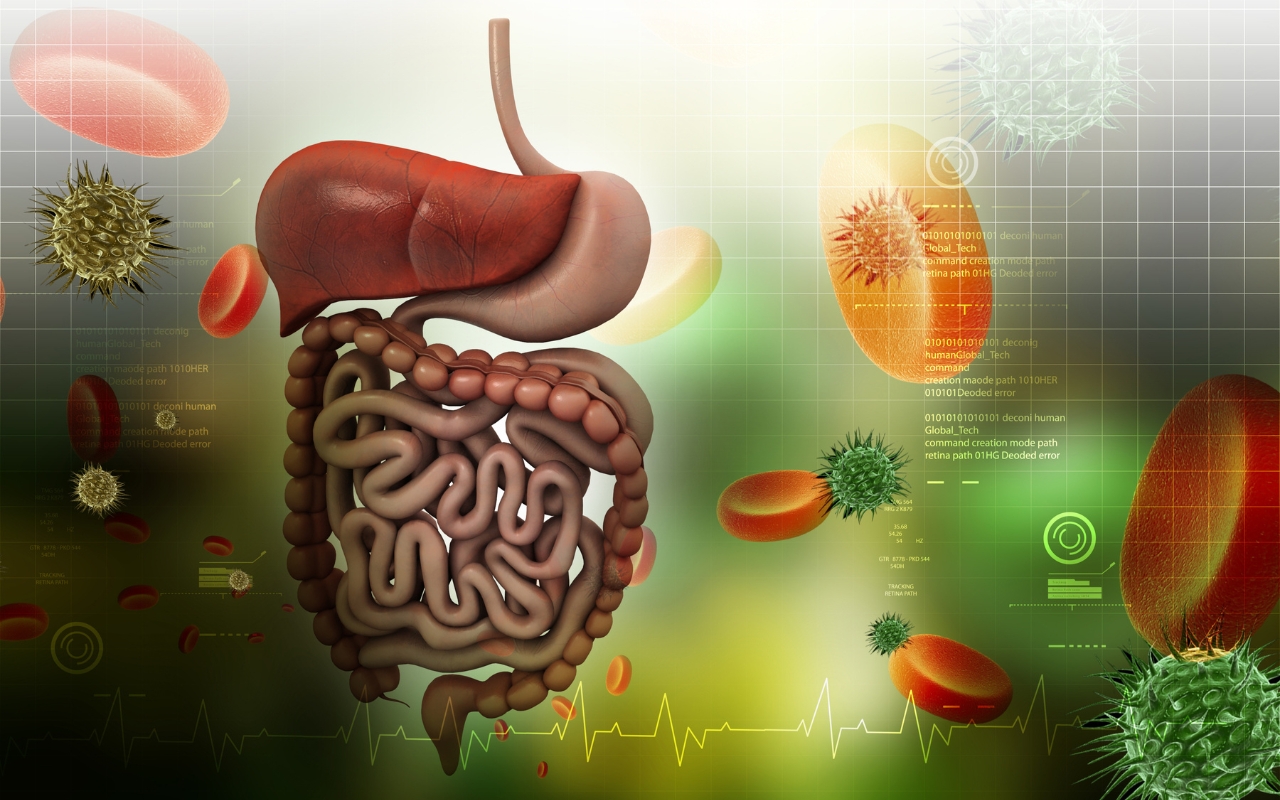Good digestive health is essential for overall well-being and quality of life. Through your digestive system, your body absorbs vital nutrients from food, prevents infection and disease, and maintains a healthy immune system. Unfortunately, poor dietary choices, chronically high-stress levels, and a lack of physical activity can lead to gastrointestinal issues, compromising your health.
This comprehensive guide delves into the most effective ways to enhance digestive health. Following these strategies can support your gastrointestinal system, boost your overall health, and live your best life.
Probiotics: The Power of Beneficial Bacteria
One of the most effective ways to promote a healthy gut is to incorporate probiotics into your diet. Probiotics are beneficial bacteria that help balance the gut microbiome, the community of microorganisms living in your digestive tract. These bacteria are crucial in digestion, immune function, and even mental health.
Fermented foods are an excellent source of probiotics. Foods like yogurt, kefir, sauerkraut, and kimchi contain live cultures that can enhance gut health. Eating these foods regularly can improve digestion, reduce inflammation, and boost the immune system. Another option is to take probiotic supplements, especially if you have specific digestive conditions like irritable bowel syndrome (IBS) or inflammatory bowel disease (IBD).
For more information on probiotics and their benefits, visit Austin Gastro.
Fiber: The Essential Nutrient for Digestive Health
Fiber is a crucial nutrient for maintaining a healthy digestive system. There are two main types of fiber: soluble and insoluble. Soluble fiber absorbs water and helps form a gel-like substance that can slow digestion, while insoluble fiber adds bulk to the stool and helps food pass quickly through the stomach and intestines.
Eating a diet rich in both types of fiber can promote regular bowel movements, prevent constipation, and reduce the risk of digestive disorders. Soluble fiber is found in foods like oats, barley, and legumes, while whole grains, nuts, and seeds are excellent sources of insoluble fiber. Fruits and vegetables are rich in both types of fiber, so including a variety of these foods in your diet ensures you get the benefits of each type.
Check out this Healthline article to learn more about the importance of fiber and how to incorporate it into your diet.
Hydration: Keeping Your Digestive System Flowing
Staying hydrated is essential for healthy digestion. Water helps break down food so your body can absorb the nutrients. It also softens stool, preventing constipation and promoting regular bowel movements. Inadequate hydration can lead to digestive issues such as bloating, indigestion, and constipation.
In addition to drinking plenty of water, you can stay hydrated by consuming water-rich foods like cucumbers, watermelon, and strawberries. These fruits and vegetables help maintain hydration and provide essential vitamins and minerals that support overall health.
For tips on staying hydrated and its impact on digestion, visit Austin Gastro.
Regular Exercise: Boosting Digestion Through Movement
Exercise is beneficial for weight management and plays a significant role in maintaining a healthy digestive system. Regular physical activity helps improve circulation throughout the body, including the digestive tract, which aids in nutrient absorption. Exercise can also reduce symptoms of constipation and bloating by promoting regular bowel movements and reducing inflammation.
Walking, jogging, yoga, and strength training can improve digestive health. Even moderate exercise, such as brisk walking after meals, can positively impact digestion. Aim for at least 30 minutes of exercise most days of the week to reap the benefits.
Refer to this Healthline guide to understand how exercise can improve digestive health.
Stress Management: The Gut-Brain Connection
Stress and anxiety have a profound impact on digestive health. The gut-brain connection, also known as the enteric nervous system, links the mental and emotional state to gastrointestinal function. High levels of stress can lead to digestive issues such as heartburn, IBS, and ulcers.
Managing stress is crucial for maintaining a healthy digestive system. Techniques such as mindfulness meditation, deep breathing exercises, yoga, and progressive muscle relaxation can help reduce stress levels. Additionally, seeking professional support for anxiety and depression can be beneficial. Talking to a healthcare provider about stress management strategies and mental health resources can help you find the best solution.
For more insights on managing stress and its impact on digestive health, visit the Mayo Clinic Health System.
Intermittent Fasting: A Break for Your Gut
Intermittent fasting is a practice that involves alternating periods of fasting with periods of eating. This method can improve digestive health by giving your gut a break from constant digestion, allowing it to rest and repair. Research suggests intermittent fasting can reduce inflammation, improve gut health, and promote healthy digestion. It may also help regulate blood sugar levels and reduce the risk of obesity.
However, it's essential to consult a healthcare provider before starting any fasting regimen to ensure it's safe and appropriate for your health needs. Intermittent fasting is unsuitable for everyone, especially those with certain medical conditions or dietary requirements.
To explore the benefits of intermittent fasting for digestive health, check out this Austin Gastro article.
Sleep: The Unsung Hero of Digestive Health
Quality sleep is essential for optimal digestive health. During sleep, the body undergoes various processes that support overall health, including the repair and maintenance of the digestive system. Lack of sleep is linked to a higher prevalence of obesity and digestive disorders, as it can affect the regulation of hunger hormones and lead to unhealthy eating habits.
To improve sleep quality, establish a consistent sleep schedule, create a relaxing bedtime routine, and make your sleep environment conducive to rest. Avoiding caffeine and large meals before bedtime can also help you get a good night's sleep.
For more information on the relationship between sleep and digestive health, visit Johns Hopkins Medicine.
Healthy Eating Habits: The Foundation of Digestive Health
Healthy eating habits are fundamental to maintaining a well-functioning digestive system. A balanced diet rich in whole foods, including fruits, vegetables, whole grains, lean proteins, and healthy fats, provides the nutrients necessary for optimal digestion. Limiting the intake of processed foods, which often contain additives, trans fats, and artificial sweeteners, can further protect against digestive diseases.
Mindful eating is another crucial aspect of healthy eating habits. Paying attention to hunger and fullness cues, eating slowly, and enjoying your meals without distractions can help prevent overeating and reduce digestive discomfort. Taking time to chew your food thoroughly aids in the breakdown of food and promotes better nutrient absorption.
To learn more about healthy eating habits and their impact on digestion, visit this Healthline article.
Avoiding Late-Night Eating: Give Your Digestive System a Rest
Eating late at night can negatively impact your digestive health. When you eat right before bedtime, your body has to work on digestion while you're trying to sleep, which can lead to discomfort and disrupt your sleep cycle. This practice can also increase the risk of acid reflux and indigestion.
To support your digestive health, try to finish your last meal at least two to three hours before going to bed. This gives your body enough time to digest the food properly and reduces the likelihood of experiencing digestive issues during the night.
Check out this Mayo Clinic Health System resource for more tips on improving your digestive health.
Smoking and Alcohol: The Impact on Digestive Health
Certain lifestyle habits, such as smoking and excessive alcohol consumption, can have detrimental effects on your digestive system. Smoking is a known risk factor for the development of gastroesophageal reflux disease (GERD) and can also contribute to the formation of stomach ulcers. Quitting smoking can significantly improve acid reflux symptoms and overall digestive health.
Similarly, excessive alcohol consumption can irritate the digestive tract, leading to inflammation and an increased risk of digestive disorders. Alcohol can also disrupt the balance of gut bacteria, further compromising digestive health. Limiting alcohol intake and avoiding binge drinking can help protect your digestive system.
For additional information on the adverse effects of smoking and alcohol on digestion, visit Healthline.
The Role of Prebiotics: Nourishing Your Gut Bacteria
Prebiotics are a type of fiber that serves as food for the beneficial bacteria in your gut. By feeding these healthy bacteria, prebiotics help maintain a balanced gut microbiome and support overall digestive health. Diets high in prebiotics have been shown to improve gut barrier function and reduce inflammation.
Prebiotics are found in many fruits, vegetables, and whole grains. Some excellent sources of prebiotics include garlic, onions, leeks, asparagus, bananas, and oatmeal. Incorporating these foods into your diet can enhance the growth of beneficial gut bacteria and promote a healthy digestive system.
For more insights on prebiotics and their benefits, read this Healthline article.
Reducing Inflammatory Foods: Protecting Your Digestive Health
Certain foods can cause inflammation in the digestive tract, leading to discomfort and digestive disorders. Processed foods, trans fats, and artificial sweeteners are common culprits. Reducing the intake of these inflammatory foods can help protect your digestive health and reduce the risk of conditions such as IBS and IBD.
Instead, focus on eating whole, nutrient-dense foods that have anti-inflammatory properties. Foods rich in omega-3 fatty acids, such as fatty fish, flaxseeds, and chia seeds, can help reduce inflammation. Additionally, incorporating antioxidant-rich fruits and vegetables like berries, leafy greens, and bell peppers can support overall digestive health.
Refer to this Healthline guide for tips on reducing inflammatory foods in your diet.
Listening to Your Body: The Key to Digestive Wellness
One of the best ways to support your digestive health is to listen to your body. Attention to how different foods and habits affect your digestion can help you identify triggers and make informed dietary choices. If you experience symptoms like bloating, gas, or indigestion, note what you ate and any other factors contributing to the discomfort.
Practicing mindful eating can help you better understand your body's hunger and fullness cues. Eating slowly and savoring your meals allows you to recognize when you're satisfied, preventing overeating and reducing digestive discomfort.
For more information on mindful eating and its benefits for digestion, visit Healthline.
Conclusion: Embracing a Holistic Approach to Digestive Health
Improving your digestive health requires a holistic approach that includes a balanced diet, regular exercise, stress management, and mindful eating habits. Incorporating these practices into your daily routine can support your gastrointestinal system, enhance nutrient absorption, and reduce the risk of digestive disorders.
Remember, small changes can make a big difference. Start by incorporating more fiber-rich foods, staying hydrated, and managing stress effectively. Listen to your body and make adjustments as needed. With dedication and consistency, you can achieve optimal digestive health and enjoy a better quality of life.
For additional resources and tips on improving your digestive health, explore the following links:
- Austin Gastro
- Healthline
- Johns Hopkins Medicine
- Mayo Clinic Health System








